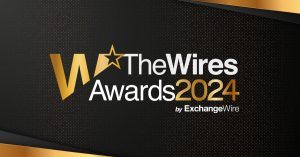AppNexus CEO: ‘There's no global body for ad tech, it’s something we’ve thought about’
by on 10th Jun 2014 in News


In the second part of a two-part interview with ExchangeWire, Brian O’Kelley, AppNexus co-founder and CEO, explains some of his thoughts on how the ad tech sector can move unilaterally to address some of the more complex issues with programmatic media trading.
In this Q&A he addresses the lack of a global trade body to represent the needs of ‘the most innovate part of the advertising industry’, plus answers traders’ questions on some of the latest AppNexus product launches.
You recently announced the launch of AppNexus Deals, some ExchangeWire readers have asked about how this platform will be able to audience discoverability? Many traders say deals are often based on specific needs, so they need to have the information to hand about what domains/inventory/audiences are available?
There’s a few different points to address here. Transparency is critically important, so our entire platform supports that kind of transparency, so you can look up and see what kinds of data, domains [of where an ad will appear], and audiences [that the ad will be served to] regardless of whether it’s AppNexus Deals or not.
When we look at discoverability, if you look at the Packaged Deals service we launched last week, that’s a key part of the offering we have, it’s almost like a rate card or media kit, that lets advertisers look up audience busy around things like sports, or a particular kind of food, that’s the foundation.
But what we expect to see in the future is a situation where the buyers won’t just click-to-buy, but we expect to see media buyers will take a look at the offering and say: ‘That’s nice, but what I want is inventory that’s more specific’. So if they’re looking at inventory around food, they can then look deeper [into a niche] such as sausages.
The advertiser can then chat back and forth with a media owner and say: ‘Well, what about this…’
The entire Deals interface is based around a collaborative process. So the process starts with a browse, then evolves to a a custom deal.
If you look at our other recent announcement with Twixt [it now has local support in Europe], that’s more about enabling buyers to do more traditional discovery, which is around RFPs.
RFPs are a very powerful tool, they’re much more powerful today, compared to what deals used to let us do, and I’ll think we’ll see how those two capabilities will evolve to do the same thing. An RFP may be a way to get deals back as opposed to I/O’s. I don’t think we fully know, but we’re investing in both sides.
With the launch of packages, we’re now in the lead in terms of offering deal discoverability. We’re talking to the major DSPs, and SSPs, about taking their similar functionality and integrating them so we can expose every package across the entire ecosystem, to make sure that buyers can see every deal that our partners have on offer.
Right now, we’re not in a position, where we’re the only game in town. We’re also committed to inter-operating with other platforms. Industry-wide, this is a work in progress.
I think we’re in a position that in another 24 months, we can look at the industry and we can see what does it mean to do collaborative deals, and to build negotiated market places.
Some more feedback ExchangeWire readers had was if there will ever be the infrastructure in place, plus the speed needed, to have accurate frequency caps? Many traders say latency issues can mean that frequency caps can be completely violated by systems if there is more than one ad spot on a page and an advertiser wins all of them.
We see some lag in general whenever we bid on an impression and get a win, and there’s a gap. So if three-or-four impressions come in at the same time. So if you’re on a browser page and we can use Javascript to make sure we don’t drop the same ad three or four times.
But in RTB, we don’t have any control over it, so a down-stream partner four impressions on the same page, at exactly the same instant and we can bid on all four, and that can potentially violate a frequency cap. We see that in some instances.
One thing that we at AppNexus have built to address this is a multi-tag bid request tool, where we will send every ad on a page a single bid request, and that does a lot to prevent this.
What we’ve seen is that many of the DSPs are incapable of bidding on all three tags, so when we send a three-bid request, they’re only capable of responding to the first tag. It’s bad for publishers and it’s bad for buyers.
One thing the industry needs to think about is whether the bidder – regardless of which technology they choose to use – capable of responding to a multi-tag request. That will go a long way to addressing this particular problem.
This is the next level of standard that we all need to push throughout the industry, as it enables things like sending three different request, as opposed to just one request enables things like road blocks, where a single advertiser wins every bid request on a page.
Do you know of anywhere, such as trade bodies like the IAB, etc, where such conversations are taking place?
We [at AppNexus] do our best to keep in touch with the various IAB organisations globally, but it’s difficult because they’re fragmented, and there’s different standards. Also, I think there’s a lot of vested interests from the people that talk to the IABs.
The IABs are generally run for the publishers, who may have different needs to the advertisers and agencies. Plus there is no global standards body for ad tech, and that’s something we’ve thought about. It makes sense to say: ‘Should there be an IAB for ad tech that cares about and supports the needs for all the various technology companies, and data companies and programmatic media companies?’
Right now, there’s just not that body, and we’d love to support that. Of course we do our best to work with the IAB, and the MRC, but they’re not always at the cutting edge of tech, because that’s not where their vested interests lie.
What would it take for such a body to get off the ground, for instance, would it take the likes of a Google or Microsoft, etc, to get behind it?
Well [the two companies just named] as well as AOL and Yahoo are all publishers, and are therefore very well represented by the IAB, so it’s very focused on what they need. But there’s not one that focuses on the more innovative side of the industry.
We’ve actually been looking at it informally with many of the other big ad tech companies in the US. Plus if you look at our summit [the AppNexus European Summit took place in London last week], and this feels like the one event for ad tech. I was actually quite surprised at how many Americans flew over to Europe to be here actually.
It’s actually important on a lot of different levels to get organised around this.
Ad ServerAd TechAd VerificationAdvertiserAgencyAnalyticsattributionAutomated GuaranteedDataDigital MarketingDisplayDSPExchangeM&AMedia SpendPerformanceProgrammaticPublisherSSPTargetingTechnologyTradingTrading Desk








Follow ExchangeWire